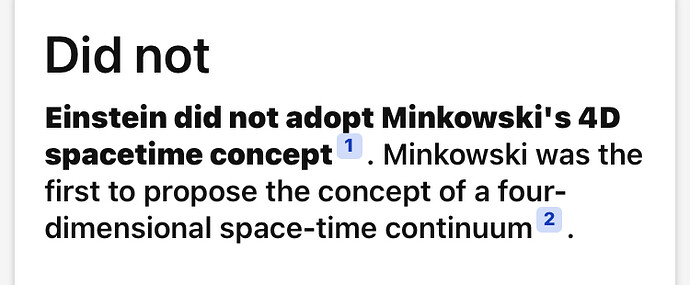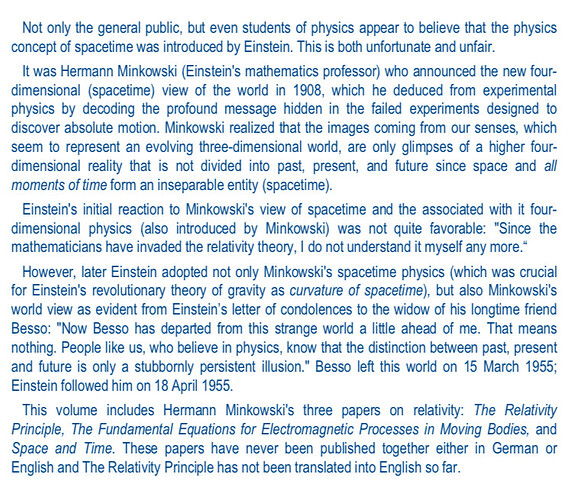I am still waiting for details that reveals a hidden scope of female philosophy in history, and a substantiation for the claim that “a woman was responsible for 80% of the work of Albert Einstein.”
I’ve been doing some further investigation of the Henri Bergson versus Albert Einstein debate on the nature of time, and it revealed that this event is more profound from the perspective of philosophy than it would appear based on public available information.
Albert Einstein’s Nobel Prize for relativity was revoked directly due to the event, and Henri Bergson was known as “the most dangerous man in the world” for his influence through ‘hidden networks’ of prestige.
The chairman of the Nobel Committee stated the following as official ground for rejecting Einstein’s Nobel Prize for relativity:
“It will be no secret that the famous philosopher Bergson in Paris has challenged this theory.”
The Committee’s use of the term “famous” and the reference of “Paris” reveals that they were elevating Bergson’s personal influence and standing as a justification for their decision.
The only potential source of personal bias in this situation would be on Bergson’s side, not the Committee’s.
Jimena Canales, professor of history at the University of Illinois at Urbana, concluded the following:
The Nobel Committee’s explanation that day surely reminded Einstein of [his dismissal of philosophy] in Paris that would spark a conflict with Bergson.
The Nobel Committee had no logical ground for rejecting Albert Einstein’s Nobel Prize for relativity.
Bergson was largely perceived to have lost the debate against Einstein and public sentiments had sided with Einstein. For many, Bergson’s defeat represented a victory of scientific “rationality” against metaphysical “intuition”.
The Nobel Committee had no institutional inclination to defend metaphysical philosophy or to defy public sentiments and scientific consensus, and it was the Committee that had nominated Einstein in the first place, therefore their decision negatively impacted their own organization’s credibility.
In the aftermath, the Nobel Committee faced intense criticism, further revealing that their action had been defiant of public sentiments.
Einstein’s Response
Instead of the Nobel Prize for relativity, Einstein received a Nobel Prize for his work on the photoelectric effect.
Einstein responded by lecturing on relativity at the Nobel ceremony, therewith dishonoring the Nobel Committee’s decision and making a statement.
“The Great Setback For Philosophy”
The event would mark “the great setback for philosophy” that until that event, had seen a period of flourishing most prominently represented by Henri Bergson’s work on the nature of time.
Albert Einstein’s dramatic action to lecture relativity during the ceremony for his Nobel Prize for the photoelectric effect played into the public sentiments of the time and caused a moral loss for philosophy that had an effect that went much beyond an intellectual loss.
The revokation of Einstein’s Nobel Prize for relativity due to “critique by a “famous” philosopher”, while public opinion had sided with Einstein, fueled a moral justification for science to break free from philosophy.
When studying the work of Henri Bergson in 2024, not for an investigation but based on a recommendation and with the idea that he might provide a strong defense for concepts such as free will, my initial impression was that Henri Bergson was ‘losing on purpose’.
Could it be that “the great setback for philosophy” and the subsequent rise and flourishing of scientism is part of philosophy’s centuries ongoing self-imposed enslavement to scientism?
Philosophy’s Self-imposed Enslavement to Scientism
Philosophy as a field may historically have instantiated or contributed to the development of dogmatic scientism with the selection of specific icons of Western philosophy.
For example, pillar of philosophy Emmanuel Kant’s apodictical certainty concept, which is knowledge that is necessarily true and cannot be doubted and more specifically concerns the belief in the realness (non-disputableness) of space and time, is dogmatically adopted and fundamentally underlays his whole philosophy.
Kant’s concept of apodictic certainty goes beyond just a strong claim and is a claim of absolute, indubitable truth, which is akin to religious dogma. Kant scholars write the following about Kant’s account of reason that fundamentally underlays the concept:
We might note that Kant never discussed reason as such. This leaves a difficult interpretative task: just what is Kant’s general and positive account of reason?
The first thing to note is Kant’s bold claim that reason is the arbiter of truth in all judgments—empirical as well as metaphysical. Unfortunately, he barely develops this thought, and the issue has attracted surprisingly little attention in the literature.
Kant’s Reason Source: plato.stanford.edu
Similar to religions, by neglecting to address the fundamental nature of reason, Kant abused the fundamental mystery of existence for an absolute truth claim and that provides evidence of intent to establish dogmatic scientism when viewed in light of the purpose clearly communicated at the start of Kant’s philosophical project: the grounding of science with indubitable certainty.
The same abuse of the mystery of existence is seen in René Descartes famous claim cogito ergo sum (I think, therefore I am) that similar to Kant’s apodictical certainty seeks to establish indubitable truth.
In the work of pillar of philosophy Edmund Husserl, the aspiration to ground science with certainty is set forward from the start and Husserl even profoundly deviates from his past philosophy in a later attempt to serve that primary purpose: the grounding of science (which means: enabling science to depart from philosophy through dogma).
Mystery of Existence
The mystery of existence has a paradoxical ability to facilitate the strongest conviction possible in experiential beings, exemplified most simply by Decartes cogito ergo sum (I think, therefore I am), and rather than a psychological flaw it might be considered a fundamental moral driver. However, that does not imply that philosophy as a field should yield to scientism, in my opinion.
Albert Einstein’s dismissal of philosophy at a gathering of the Philosophy Society of France shortly after having received his Nobel Prize nomination for relativity in 1921, resulting in ‘the great setback for philosophy’ in history, is a culmination of a then centuries ongoing movement to emancipate science from philosophy that in part originated from icons of philosophy since as early as René Descartes.
Philosopher Friedrich Nietzsche (1844-1900) in Beyond Good and Evil (Chapter 6 – We Scholars) described the evolution as following:
The declaration of independence of the scientific man, his emancipation from philosophy, is one of the subtler after-effects of democratic organization and disorganization: the self- glorification and self-conceitedness of the learned man is now everywhere in full bloom, and in its best springtime – which does not mean to imply that in this case self-praise smells sweet. Here also the instinct of the populace cries, “Freedom from all masters!” and after science has, with the happiest results, resisted theology, whose “hand-maid” it had been too long, it now proposes in its wantonness and indiscretion to lay down laws for philosophy, and in its turn to play the “master” – what am I saying! to play the PHILOSOPHER on its own account.
Science aspired to become the master of itself and Einstein’s declaration at a gathering of philosophers in Paris “The time of the philosophers is over” represented that aspiration.
From the works of Descartes, Kant, and Husserl to the contemporary era, a recurring theme emerges: the self-imposed attempt to enslave philosophy to scientism.
Professor of history Jimena Canales, author of the book Simply Einstein, cited earlier, is specialized in the history of the Einstein-Bergson debate event and described the event as following:
The “dialogue between the greatest philosopher and the greatest physicist of the 20th century” was dutifully written down. It was a script fit for the theater. The meeting, and the words they uttered, would be discussed for the rest of the century.
In the years that followed the debate, … the scientist’s views on time came to dominate. … For many, the philosopher’s defeat represented a victory of “rationality” against “intuition”. … Thus began “the story of the setback for philosophy”, … then began the period when the relevance of philosophy declined in the face of the rising influence of science.
She wrote a book about the event: The Physicist and the Philosopher | Princeton University Press
Her website:
In a sense, professor Canales is a female philosopher.





